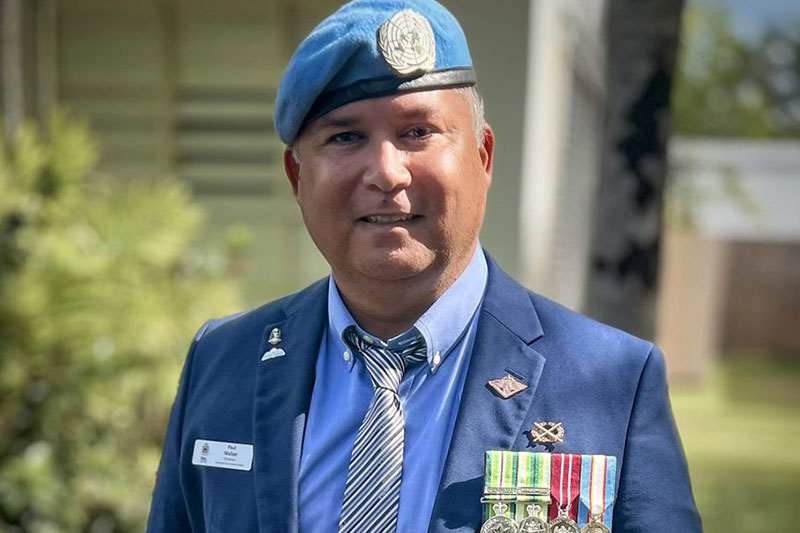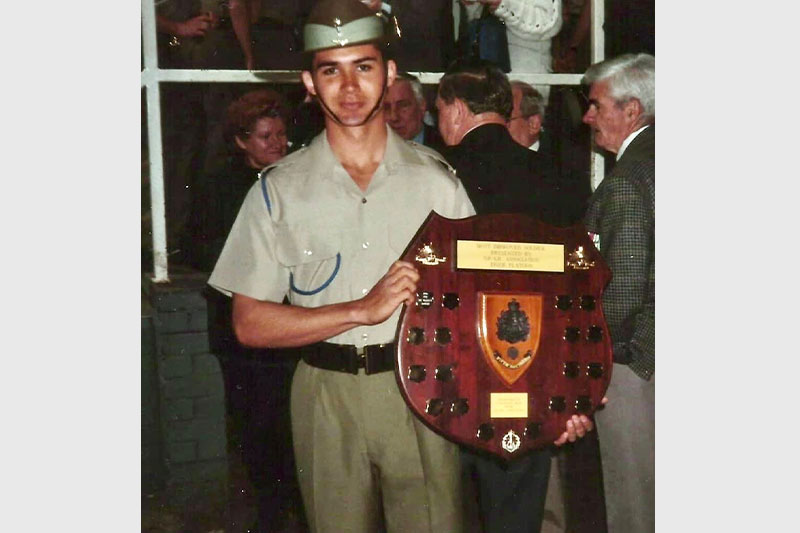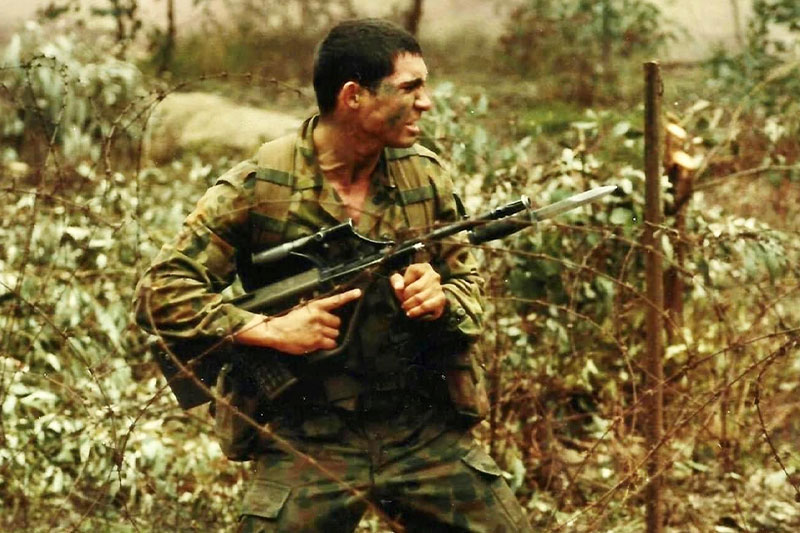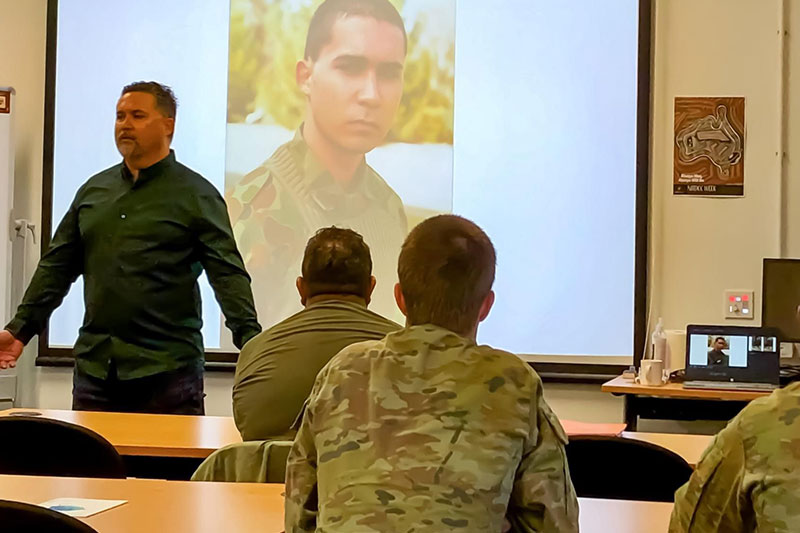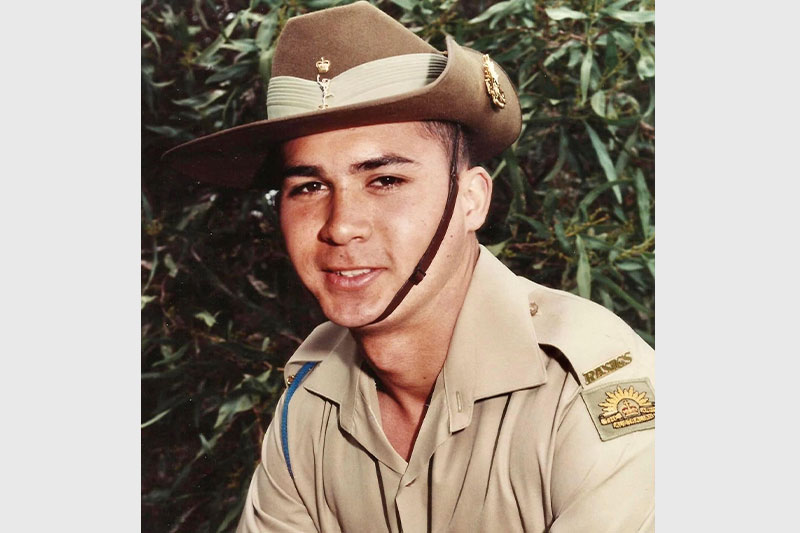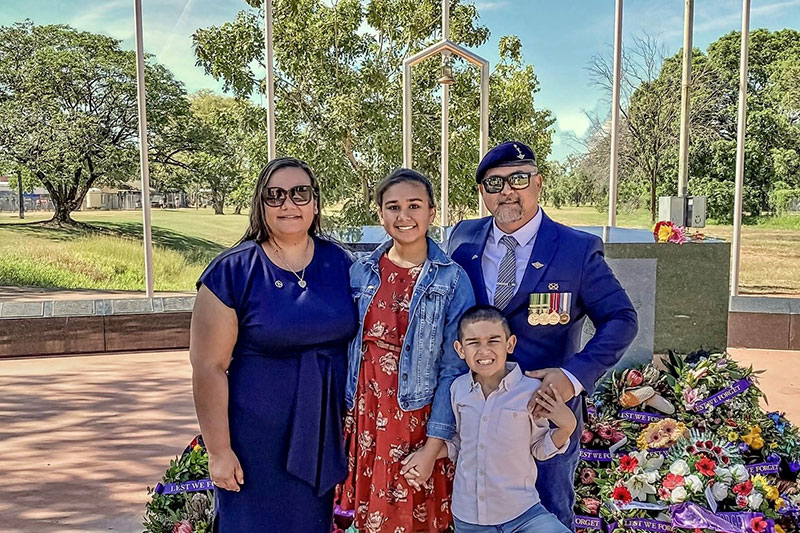23 May 2024
Serving country and community
Belinda Crossman
Paul is a proud Australian Army veteran with a strong Indigenous identity. A Waanyi man on his mother’s side, he has deep connections to the Gulf of Carpentaria. He’s also forged significant ties to his current home of Cairns (Gimuy), which will host the Indigenous Veterans’ Ceremony in 2024.
“I'm really honoured to be involved,” he says.
Forever a veteran
It was in Cairns that Paul, aged 20, signed up to join the Army.
He served as a ‘bear’ – or electronic warfare (EW) operator – in the Royal Australian Signals Corps from 1996 to 2003. Based primarily at 7th Signals Regiment EW, he served with the Peace Monitoring Group in Bougainville in 1998 before joining the United Nations Transitional Administration in East Timor (UNTAET) in 2000.
“It was a very action-packed seven years of service,” he reflects. “I learned five specialist languages in that time, and I became para-qualified to support the 3rd Parachute Battalion and the likes of the 4th Commando Regiment, which was awesome.”
Paul “loved” his time in the Army, and the camaraderie that came with it – “I made a lot of friends that are like family to me today” – and feels his service means more to him now than ever.
“I now realise the significance of my service. It's one of the proudest periods in my life, because I will forever be a veteran of the Australian Army.”
Compelled to serve
Since leaving Defence, Paul has continued to serve his community in many capacities: volunteering with disaster relief, as a mental health speaker and in his current roles as Cairns RSL Sub Branch Treasurer and the Far North Queensland representative of the Australian Peacekeeper and Peacemaker Veterans’ Association.
“The military demands a certain work ethic and culture of you and it's hard to drop that pace. Now I'm not getting that from the military, I'm putting that dedication and effort into the veteran and broader community,” he says.
“It's a big part of my identity. It's like a calling; I feel compelled to be a part of something. Volunteering is such a good thing. It's good for your mental health; it's good for your sense of wellbeing.”
Mentoring the next generation
Another highlight of Paul’s work is speaking at commemorative events and to younger generations of service personnel, including the North West Mobile Force (commonly known as NORFORCE) and graduates of the Navy Indigenous Defence Program (NIDP).
He readily shares his positive experiences – and his past struggles – to encourage the Defence members of today and tomorrow. “I talk about believing in yourself and just how good it is, what they’re going into,” he says.
“I talk about having to push through a lot of hurdles as a young person, with little guidance really.
“I had a bit of a tough upbringing. I went to seven different high schools, kind of bounced around from town to town, couch surfing and all that. Persevering through school was all I knew how to do, and I eventually got a half-decent report card to join the Army.
“So, I talk about the hurdles that you might go through in life, that you're not the only one, and you can get through this.”
Acknowledging where we’ve come from
As well as being grateful for his time in service, and excited for aspiring and current serving members’ future, Paul says it’s important not to lose sight of history.
“Indigenous service dates right back to the Boer War, World War I and right through World War II,” he says.
“I think it's important to constructively, compassionately and very respectfully acknowledge where we've come from: including the 1967 referendum to acknowledge Indigenous people as citizens, and the unfortunate stories of returned Indigenous service people not being allowed in pubs with their mates, or not being afforded land grants like others who’d done the same service.
“In saying this, it’s been great from my personal perspective. Having joined the military in the 1990s, I feel that this decade has had so much more opportunity with these Indigenous development programs.
“This decade is better than the decade before that, which was better than the decade before that. Things have improved so much. I think we're heading in the right direction and it's great to be part of.
“We acknowledge the generations before us, and I'm coming to that stage where I can impart those experiences and knowledge onto my children. They've spoken to me about maybe joining Defence one day and I tell them all the good stories and how it's a great opportunity to do something positive, and an honour to serve your country.”
A message of inclusion
One message that Paul hopes the Indigenous Veterans’ Ceremony will get across is inclusion.
“It's not a separate thing all on its own. We're acknowledging a small group as a collective – and the struggles they had – but also the courage, determination and victories that we've all shared as a nation,” he says.
“At the end of the day, we're all Australians, it's a very positive occasion and I can't speak highly enough of it. The Indigenous Veterans’ Ceremony is very relevant, and I hope we continue to do it for a long time into the future.
“I’m sure it's going to attract a lot of young people. If I was one of them attending a day like this, I'd be pretty inspired and walk away with a lot more knowledge and pride in what our service people do.”
Indigenous Veterans’ Ceremony
The annual Indigenous Veterans’ Ceremony recognises all Aboriginal and Torres Strait Islander peoples who have served in Australia’s armed forces.
For more information
Join us in person or online to commemorate their invaluable contribution.

